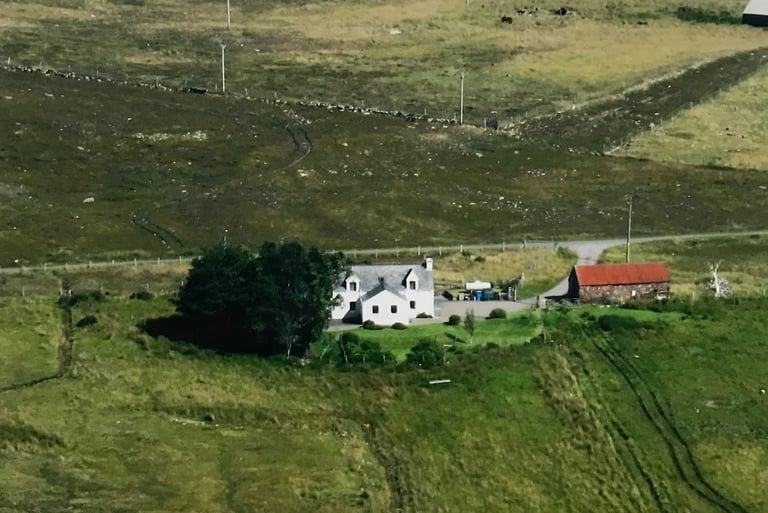FROM INVERASDALE TO POOLEWE - HECTOR MACKENZIE'S SONGS
Creag Chomhaidh
tune – Air Braighe Loch Iall
From top of Creag Chomhaidh Loch Ewe can be seen
It’s been many years since up there I’ve been
Not majestic to view in stature not grand
Still in my life a soft spot does command.
The view from the top dictates the whole scene
Poolewe down to Cove and all in between
The landscape all changed in so many ways
Complete transformation the scene now portrays.
Could see the house where saw light of day
Time has moved on what more can one say
Did sit for a while the years to reflect
On a people no more we think back with respect.
The Bard himself when faced with submission
Did climb to the top in a dream had a vision
The view he did picture eased some of the pain
Renewed his belief that freedom would gain.
The war at an end he now had a mission
To climb Creag Chomhaidh this time not in vision
After a while when health was restored
His quest for the summit could not be ignored.
One fine afternoon when time did permit
He climbed to the top his knee hurt a bit
He thanked the ‘Most High’ as he scanned the whole glen
Now felt at ease to put stored words to pen.
Time has marched on Creag Chomhaidh will remain
The Bard has passed on from gloom must refrain
We think of the Bard, Creag Chomhaidh and the glen
His memory lives on through the strength of his pen.


Memories
Songs celebrating history, people, and places of Wester Ross.
© 2025. All rights reserved.